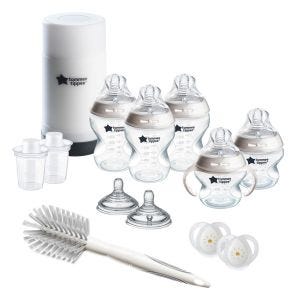
This is a demo store. No orders will be fulfilled.
Subscription orders can be cancelled at anytime. Free delivery on all subsequent subscription orders. Find out more about subscriptions.
They’re easy and fuss free
Your products are automatically sent to you
You save up to 10% when you sign up for a subscription
You can cancel at any time
As an expecting parent, it can sometimes be difficult to distinguish between normal pregnancy symptoms and the early signs of labor. We've written this guide to give you valuable information on what to look out for and when to contact your healthcare provider.
Knowing the early signs of labor can help you prepare for the arrival of your baby, so let's dive in and explore the key signs that your body may give you that labor is near.
There are a few key indicators that signal that labor is about to start, but the truth is, every labor experience is unique.
You may experience some of the symptoms we're going to run through, but this doesn't necessarily mean that your labor will start immediately.
The early signs of labor typically start in the third trimester between 37 and 42 weeks of pregnancy.
If this is your first pregnancy, you might be uncertain about when it's time to go to the hospital or midwifery unit. The best thing to do is to get in touch with your hospital or unit for guidance.
If your waters have broken, you'll likely be asked to come in for a check-up. If you're experiencing contractions but your waters haven't broken, you may be advised to wait.
Typically, you'll be asked to come in when your contractions are:
Don't forget to call the hospital or unit before leaving your home and make sure you bring your notes and hospital bag.
If you live far from the hospital, it's best to leave sooner to make sure you get there in time.
Second babies tend to arrive faster, so you may need to contact the hospital, midwifery unit, or midwife sooner.
If you're planning to give birth at home, follow the procedure you've discussed with your midwife regarding the onset of labor, and make sure you're aware of the signs.
You should seek medical advice if: